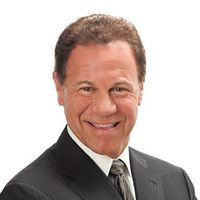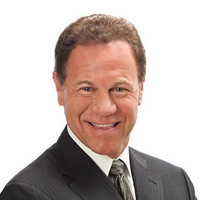3 Reasons Target Date Funds Aren’t Right for Anyone!
Sure, they're an easy way to plan for retirement, but those who take the easy way out could be shortchanging themselves.


Profit and prosper with the best of Kiplinger's advice on investing, taxes, retirement, personal finance and much more. Delivered daily. Enter your email in the box and click Sign Me Up.
You are now subscribed
Your newsletter sign-up was successful
Want to add more newsletters?

Delivered daily
Kiplinger Today
Profit and prosper with the best of Kiplinger's advice on investing, taxes, retirement, personal finance and much more delivered daily. Smart money moves start here.

Sent five days a week
Kiplinger A Step Ahead
Get practical help to make better financial decisions in your everyday life, from spending to savings on top deals.

Delivered daily
Kiplinger Closing Bell
Get today's biggest financial and investing headlines delivered to your inbox every day the U.S. stock market is open.

Sent twice a week
Kiplinger Adviser Intel
Financial pros across the country share best practices and fresh tactics to preserve and grow your wealth.

Delivered weekly
Kiplinger Tax Tips
Trim your federal and state tax bills with practical tax-planning and tax-cutting strategies.

Sent twice a week
Kiplinger Retirement Tips
Your twice-a-week guide to planning and enjoying a financially secure and richly rewarding retirement

Sent bimonthly.
Kiplinger Adviser Angle
Insights for advisers, wealth managers and other financial professionals.

Sent twice a week
Kiplinger Investing Weekly
Your twice-a-week roundup of promising stocks, funds, companies and industries you should consider, ones you should avoid, and why.

Sent weekly for six weeks
Kiplinger Invest for Retirement
Your step-by-step six-part series on how to invest for retirement, from devising a successful strategy to exactly which investments to choose.
I know that the title of this newsletter is a bit provocative because you must be thinking, “They must be right for someone?” The answer is they are not right for anyone, because they try to fit everyone during many years, some as many as 40 years.
Assets in target date funds swelled to more than $880 billion in 2016, according to Morningstar. That’s a number that’s high enough to scare me. Why am I so against target date funds? There are many reasons; let me share three.
1. Bonds aren’t a sure thing for retirees.
The first problem with target date funds is that they are trying to predict the future by saying when you retire it is a good idea to have most of your assets in bonds vs. stocks.
From just $107.88 $24.99 for Kiplinger Personal Finance
Become a smarter, better informed investor. Subscribe from just $107.88 $24.99, plus get up to 4 Special Issues

Sign up for Kiplinger’s Free Newsletters
Profit and prosper with the best of expert advice on investing, taxes, retirement, personal finance and more - straight to your e-mail.
Profit and prosper with the best of expert advice - straight to your e-mail.
We are currently at the end of a long bull market in bonds. If your target date is close, your performance will suffer as bonds decline and interest rates rise; just when retirement is around the corner your account will take a big hit.
Target date funds are meant to become more conservative as you get closer to retirement, because bonds are supposed to be less risky than stocks. While that’s often true, any adviser with 30 years of experience would know this is not always the case, based on history. Interest rates go up and down and the cycle may be long sometimes, but nothing stays the same forever.
2. Multiple fees can hide inside these funds.
The management of these funds can be outrageous. Take a look at what your money is invested in, and you will be surprised you actually own many mutual funds within the same fund company; sometimes 20-25 of their own funds.
Wow, what a great way for the mutual fund company to make more fees: Charge ½% to 1% for the target fund management fee, and then invest the clients’ money in your own mutual funds, which charge another ½% to 1% of fees on top of that.
I hope you are not paying a broker management fees or commissions on top of the internal fees. You must also be careful of the fund company your money is with, because in some occurrences the mutual fund company will charge a sales charge to invest in their funds within the target date fund. I wonder how many investors have no idea this is happening?
3. They do an educational disservice to investors.
Finally, the product’s oversimplification can result in a lack of education for investors about risk tolerance. Understanding your capacity for risk is important, and it comes through good investment education.
A broker may ask you what your tolerance for risk is. If you don’t understand how stocks work and fear the unknown, you tell the broker you have a low tolerance despite being only 45 years old. Then you get steered toward low-risk, low-reward investments, which may not be the best for someone with plenty of time until retirement.
Seventy-year-olds should not have the same amount of his investments in stocks as 45-year-olds. They should have more money in short-term investments, like CDs and money markets, which are available on short notice for medical emergencies and other short-term needs.
This doesn’t mean they should have nothing in stocks, or even a very small amount. Today, 70-year-olds have a good chance of living well into their 80s or 90s. In the U.S., there are about 72,000 centenarians, and that number is expected to more than double in the next four years. So, even at 70, one could easily have another 15 to 30 years to live.
Since my firm invests in value companies that are less risky than many stocks, I feel comfortable with a higher portion of my clients’ assets in stocks (especially including some dividend-paying stocks) in their portfolio.
I always talk about how great Wall Street is in designing products to make you feel comfortable and make them a lot of money. Target date funds were a big winner for Wall Street. They feed off the needs of people who want to do the right thing but don’t know exactly how.
Can you imagine planning your vacation once and never having to change it? That would not work out too well because life changes as time passes. It’s the same with your retirement plans: If you want to have a good retirement you need to spend the time necessary to understand your portfolio. A qualified investment adviser can help.
If you don’t start doing things right now, you will regret it when it’s too late.
Profit and prosper with the best of Kiplinger's advice on investing, taxes, retirement, personal finance and much more. Delivered daily. Enter your email in the box and click Sign Me Up.

Brent M. Wilsey, President of Wilsey Asset Management, is a highly regarded registered investment adviser and a seasoned financial strategist with over 40 years of experience. He offers day-to-day investment guidance to both individual investors and corporations. Having opened his LPL branch office in 1992, currently Wilsey's firm manages over $200 million in assets. Reach him online at www.wilseyassetmanagement.com.
-
 Nasdaq Leads a Rocky Risk-On Rally: Stock Market Today
Nasdaq Leads a Rocky Risk-On Rally: Stock Market TodayAnother worrying bout of late-session weakness couldn't take down the main equity indexes on Wednesday.
-
 Quiz: Do You Know How to Avoid the "Medigap Trap?"
Quiz: Do You Know How to Avoid the "Medigap Trap?"Quiz Test your basic knowledge of the "Medigap Trap" in our quick quiz.
-
 5 Top Tax-Efficient Mutual Funds for Smarter Investing
5 Top Tax-Efficient Mutual Funds for Smarter InvestingMutual funds are many things, but "tax-friendly" usually isn't one of them. These are the exceptions.
-
 Social Security Break-Even Math Is Helpful, But Don't Let It Dictate When You'll File
Social Security Break-Even Math Is Helpful, But Don't Let It Dictate When You'll FileYour Social Security break-even age tells you how long you'd need to live for delaying to pay off, but shouldn't be the sole basis for deciding when to claim.
-
 I'm an Opportunity Zone Pro: This Is How to Deliver Roth-Like Tax-Free Growth (Without Contribution Limits)
I'm an Opportunity Zone Pro: This Is How to Deliver Roth-Like Tax-Free Growth (Without Contribution Limits)Investors who combine Roth IRAs, the gold standard of tax-free savings, with qualified opportunity funds could enjoy decades of tax-free growth.
-
 One of the Most Powerful Wealth-Building Moves a Woman Can Make: A Midcareer Pivot
One of the Most Powerful Wealth-Building Moves a Woman Can Make: A Midcareer PivotIf it feels like you can't sustain what you're doing for the next 20 years, it's time for an honest look at what's draining you and what energizes you.
-
 I'm a Wealth Adviser Obsessed With Mahjong: Here Are 8 Ways It Can Teach Us How to Manage Our Money
I'm a Wealth Adviser Obsessed With Mahjong: Here Are 8 Ways It Can Teach Us How to Manage Our MoneyThis increasingly popular Chinese game can teach us not only how to help manage our money but also how important it is to connect with other people.
-
 Looking for a Financial Book That Won't Put Your Young Adult to Sleep? This One Makes 'Cents'
Looking for a Financial Book That Won't Put Your Young Adult to Sleep? This One Makes 'Cents'"Wealth Your Way" by Cosmo DeStefano offers a highly accessible guide for young adults and their parents on building wealth through simple, consistent habits.
-
 Global Uncertainty Has Investors Running Scared: This Is How Advisers Can Reassure Them
Global Uncertainty Has Investors Running Scared: This Is How Advisers Can Reassure ThemHow can advisers reassure clients nervous about their plans in an increasingly complex and rapidly changing world? This conversational framework provides the key.
-
 I'm a Real Estate Investing Pro: This Is How to Use 1031 Exchanges to Scale Up Your Real Estate Empire
I'm a Real Estate Investing Pro: This Is How to Use 1031 Exchanges to Scale Up Your Real Estate EmpireSmall rental properties can be excellent investments, but you can use 1031 exchanges to transition to commercial real estate for bigger wealth-building.
-
 Should You Jump on the Roth Conversion Bandwagon? A Financial Adviser Weighs In
Should You Jump on the Roth Conversion Bandwagon? A Financial Adviser Weighs InRoth conversions are all the rage, but what works well for one household can cause financial strain for another. This is what you should consider before moving ahead.